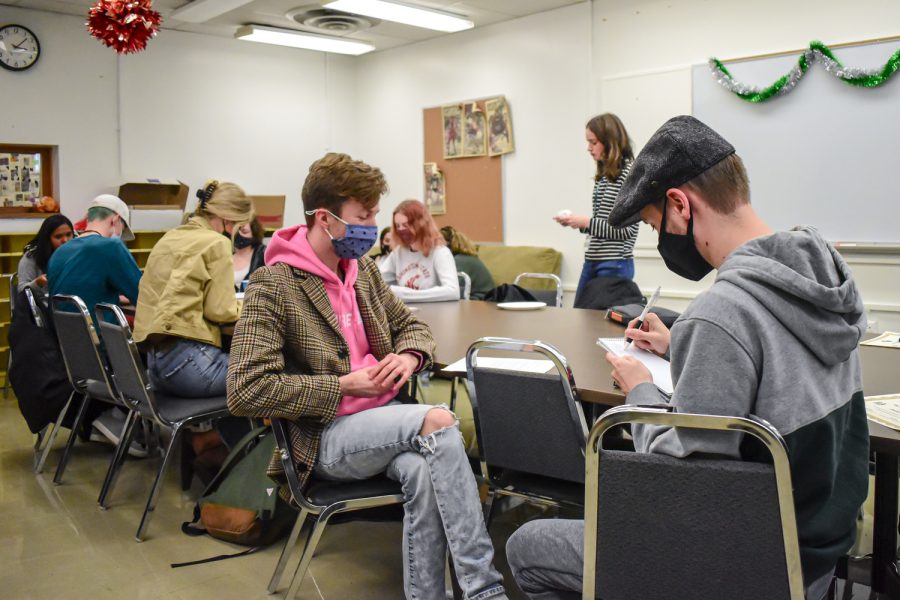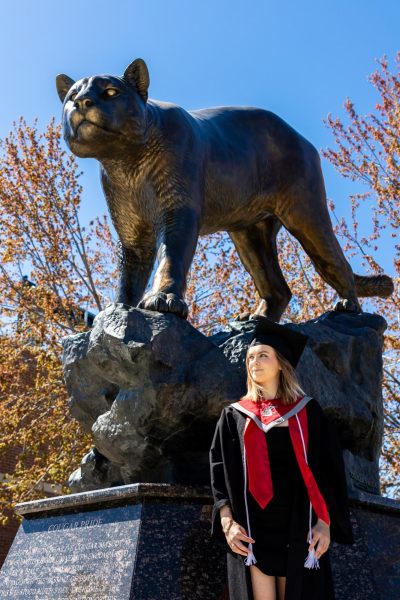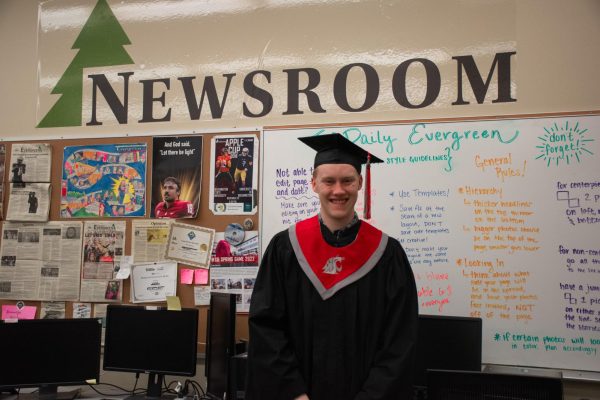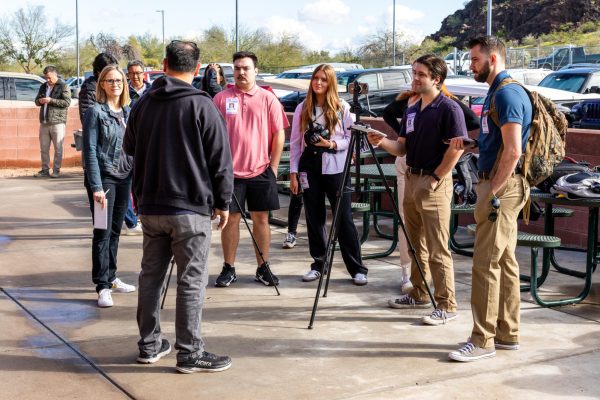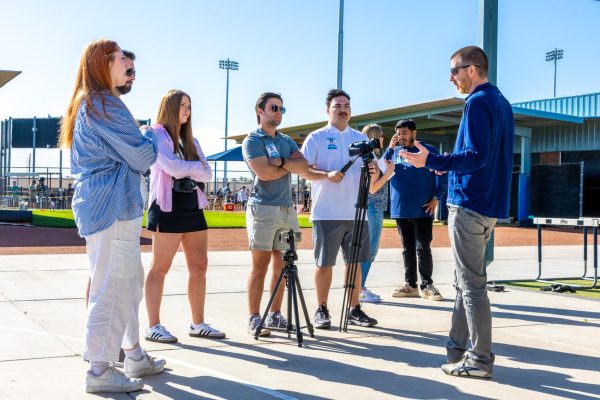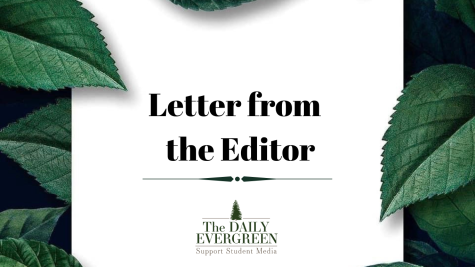Behind the Press: Reporters practice asking hard-hitting questions in Evergreen ‘hot-seat’
Asking ‘why’ can yield better answers about important topics; readers deserve in-depth reporting about relevant issues
EMMA LEDBETTER | DAILY EVERGREEN FILE
Deputy news editor Alex McCollum, left, plays a character during an interview workshop and training in December 2021. Evergreen staff members participated in a similar virtual training this weekend.
February 7, 2022
In an effort to make job training more hands-on, several editors and I endeavored to create an interactive exercise that would encourage reporters to get out of their comfort zone and ask “hard questions” with some particularly difficult sources.
Imagine the game “hot seat” — one person is put on the spot and has to answer any questions the group poses to them.
In our Evergreen hot seat, we had three editors play sources who were not willing to give a straightforward answer to our questions. Staff members were put in three groups and competed to ask the best questions.
In most cases, sources are very helpful and answer our questions to the best of their ability. Other times, they can talk around the question, give a long-winded answer or evade it entirely. There are a number of reasons this happens, but better interviewing skills can help alleviate the problem.
It is our duty to our readers to get answers people may not want to disclose about important issues. Our duty to the public is not to craft a perfect “public relations” response, but to seek the truth in everything we report.
Sometimes the pursuit of that information can be awkward or come off as rude — like that game kids play where they repeatedly ask “why,” even when the answer seems sufficient.
“Why are you training reporters to ask hard questions?” Because they often struggle to ask questions when they are uncomfortable, even if those questions are important.
“Why are those questions important?” Because readers expect a level of depth in our coverage that we can’t get without digging into the details.
“Why do we have to report those details?” Because those details affect our readers in a number of ways, and they deserve to be informed.
You get the point.
Whether Evergreen reporters are covering WSU’s changing COVID-19 protocols, tuition increases, parking prices or anything else impacting students and Pullman residents, we are committed to in-depth reporting.
So back to the training. Yes, there were hiccups. Yes, Zoom made it difficult not to interrupt each other. But I think many reporters left feeling empowered to ask things they might not normally ask during an interview.
As reporters (and I) practice these skills, I encourage our readers to write in with questions and concerns. My inbox is always open to feedback, at [email protected].

